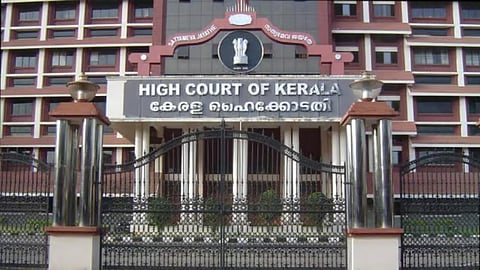HC asks Kerala govt to give full Hema Committee report to SIT for probe into offences
The special bench of Kerala High Court that was tasked with hearing the cases related to the Hema Committee report came down heavily upon the state government for its inaction over the disclosures made in the report, that looked into the challenges faced by women in the Kerala film industry. The special bench comprising Justices AK Jayasankaran Nambiar and CS Sudha was constituted by the HC on September 5.
As the Advocate General (AG) updated the court that a special investigation team (SIT) has been formed by the government to look into the allegations, the court questioned what has been done regarding the disclosures made in the report. The bench also asked why the government has remained silent despite the report being submitted years ago. The committee, headed by former Justice K Hema, was formed in the aftermath of the sexual assault of a female actor in a moving car in Kochi in 2017. The committee submitted the report to the Kerala government in 2018, but it was not released to the public.
“We are surprised by this inaction. When it received the report or when DGP was given a copy in Feb 2021, some action must have been taken. Assuring confidentiality of women, we understand that. But the state govt is confronted with practices derogatory to women, what has it done? What is it that you are doing to address problems facing women, not just in cinema?” the court asked. Further, stating that this was a problem affecting the majority in the state, the court observed that it cannot be silent.
The special bench also questioned why cases were not registered despite several offences, including that of POCSO, which have been described in the report. While the AG responded that only the instances are mentioned in the report without the names of victims or perpetrators, the court said that an investigation could have been started and dropped, if the victims did not want to prosecute. “But why cannot an investigation be started?” the court asked.
The bench then directed the government to hand over the entire report, including audio recordings, to the SIT and asked the SIT to submit a report about the action that they can take. “We want to know what action they can take. Then we will probably open the sealed cover to find if the SITs action or inaction is justified or not,” the court said, adding that the SIT must not only look into the sexual offences but also into the other problems faced by women in the Malayalam film industry.
The court also ordered that the investigating officers shall not hold a press conference and that ‘media trial’ should not be conducted. Further, the bench said, “Media has a sense of responsibility. We don’t think an order has to be issued to the media in that regard. SIT must act without pressure. Print or electronic media must not put pressure on SIT to act in haste. We can only express hope that the media will act responsibly.” The court, however, clarified that there is no gag order on media or that the investigating officer should not talk to the media at all. “But there should be no media trial. Privacy and confidentiality must be respected by the media also. We hope they will understand it.”
The court said that while SIT can look into criminal offences referred to in the report, issues like labour issues, economic issues faced by women must be looked into by the government. Stating that there are instances in the report that there is exploitation even before the production of a film starts, the court said that if such issues are not being addressed with existing legislations, the government must think of new laws.
The special bench also observed that it was obligatory for the state to formulate legislation addressing problems of women. “Silence is not an option for the government. It has constitutional obligation under directive principles of state policy and fundamental duties.” The court also suggested that the government can consider arbitration and mediation proceedings as part of the new legislation and said that the government can draft a new law with a feminist perspective, including trans persons and other intersectional aspects like disabilities.
The high court had formed the special bench while hearing an appeal filed by producer Sajimon Parayil challenging a single judge order that allowed for the release of the report. Earlier this year, on July 6, the State Information Commission (SIC) passed an order, directing the Kerala government to issue the Hema Committee report before July 25. The SIC had specified that the report should only be issued after taking down information pertaining to the privacy of individuals, as prohibited under the Right to Information (RTI) Act. The report, which is believed to have crucial findings about systemic harassment in the Malayalam film industry, was initially scheduled to be released by 4 pm on July 24, but was released on August 13. The version now available to the public has been heavily redacted to protect the privacy of those who deposed, with all identifiers, including the names of the perpetrators, removed. The report, however, has since emboldened many women in the industry to publicly share their traumatic experiences, triggering another #MeToo wave in Kerala.

